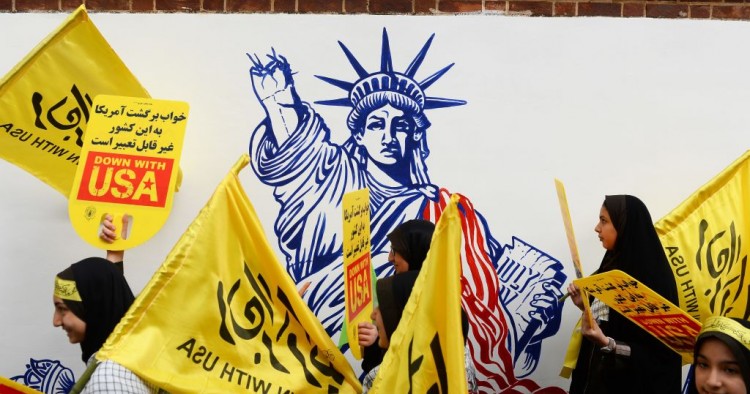On this 40th anniversary of the takeover of the U.S. embassy in Tehran, it is worth remembering a few facts about that momentous event that forever changed U.S.-Iranian relations. This past week, Iranian Supreme Leader Ayatollah Ali Khamenei again maintained that the seizing of the embassy was a response to decades of U.S. misdeeds in Iran, and specifically Washington’s role in the removal of Prime Minister Mohammad Mossadegh in 1953.
Setting aside the issue of whether U.S. support for the shah was proper or not, history shows that the Khomeinists who took over the embassy on Nov. 4 did so for narrow reasons rooted in the power politics of Tehran in those chaotic early days of 1979. They wanted to “Islamicize” the revolution and marginalize other anti-shah forces, especially the godless leftists. Domestic events and political competition shaped their position vis-à-vis the United States and not some long-held ideological creed. In fact, senior Khomeinists were in touch with the U.S. embassy until the very last moment in the hopes of cutting a deal with the Carter administration about the fate of the ailing shah, who had travelled to the U.S. for medical treatment. The sudden decision to embrace an anti-U.S. agenda enabled Ayatollah Ruhollah Khomeini’s supporters to deprive the militant anti-shah leftists of a key rallying cry. The other rivals to the Khomeinists, the moderate Islamists, such as provisional Prime Minister Mehdi Bazargan, quickly realized they could not coexist with the anarchy the Khomeinists had unleashed and resigned.
Taking the American diplomats hostage for 444 days consolidated the revolution around the Khomeinists, but very few people in Tehran today will deny that it came at the great expense of isolating Iran internationally for the past 40 years. Ayatollah Khomeini never mustered the will to undo the damage before he died in 1989. His successor, Khamenei, has also in the last 30 years tapped into anti-Americanism as way of legitimizing his role even as this narrative persuades very few inside Iran these days. And yet, Khamenei’s speech last week about U.S.-Iran relations signals strongly that he has no plans to change course toward the U.S. while he is still alive. In his mind, anti-Americanism remains necessary to keep the Islamic Republic intact politically at home.
Alex Vatanka is a Senior Fellow at MEI who specializes in Middle Eastern regional security affairs with a particular focus on Iran.
Photo by Fatemeh Bahrami/Anadolu Agency via Getty Images
The Middle East Institute (MEI) is an independent, non-partisan, non-for-profit, educational organization. It does not engage in advocacy and its scholars’ opinions are their own. MEI welcomes financial donations, but retains sole editorial control over its work and its publications reflect only the authors’ views. For a listing of MEI donors, please click here.













